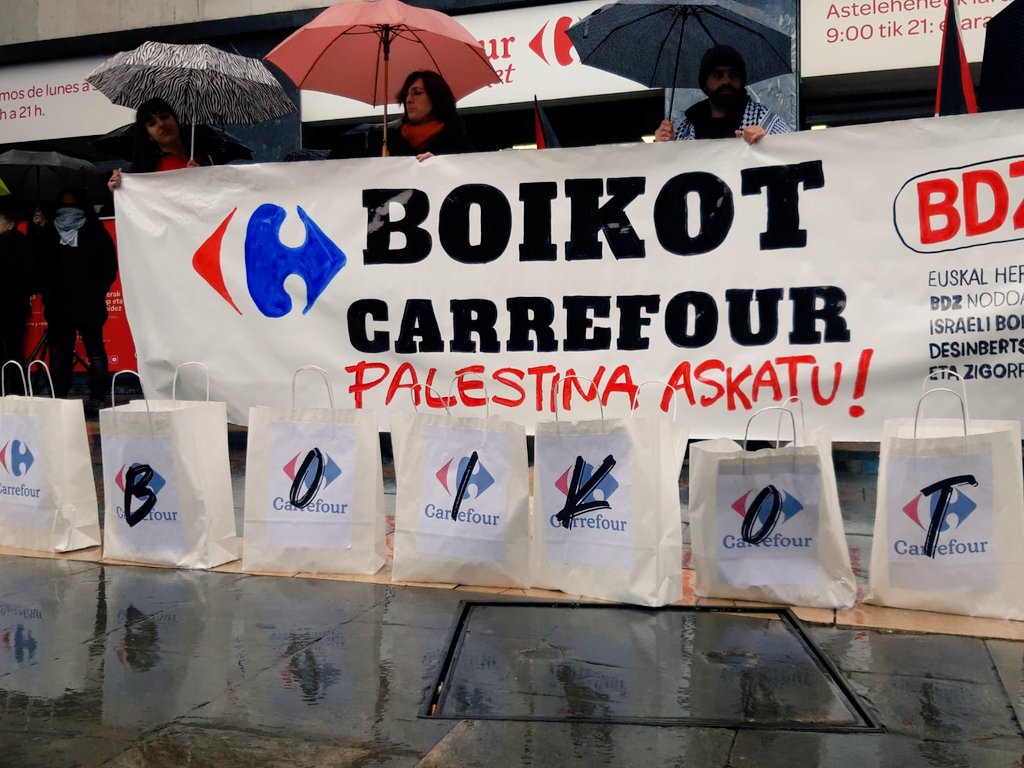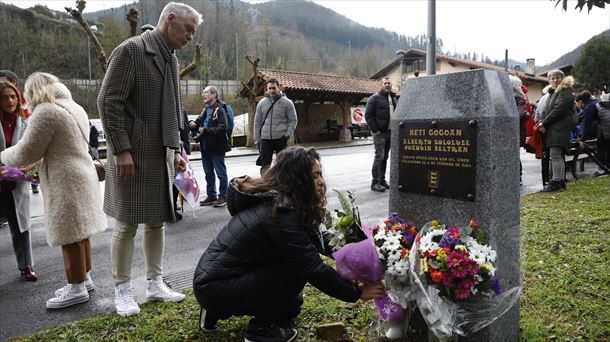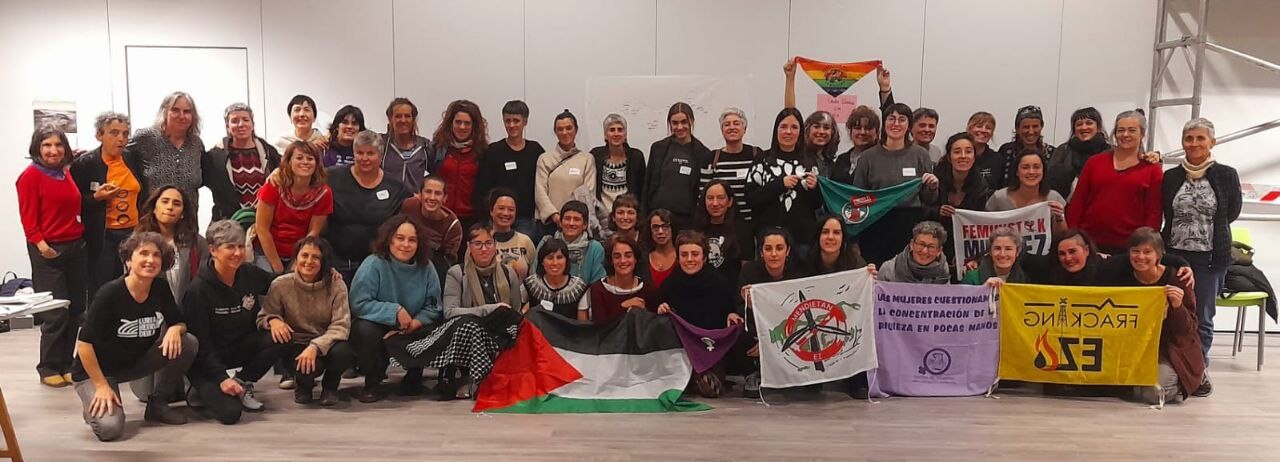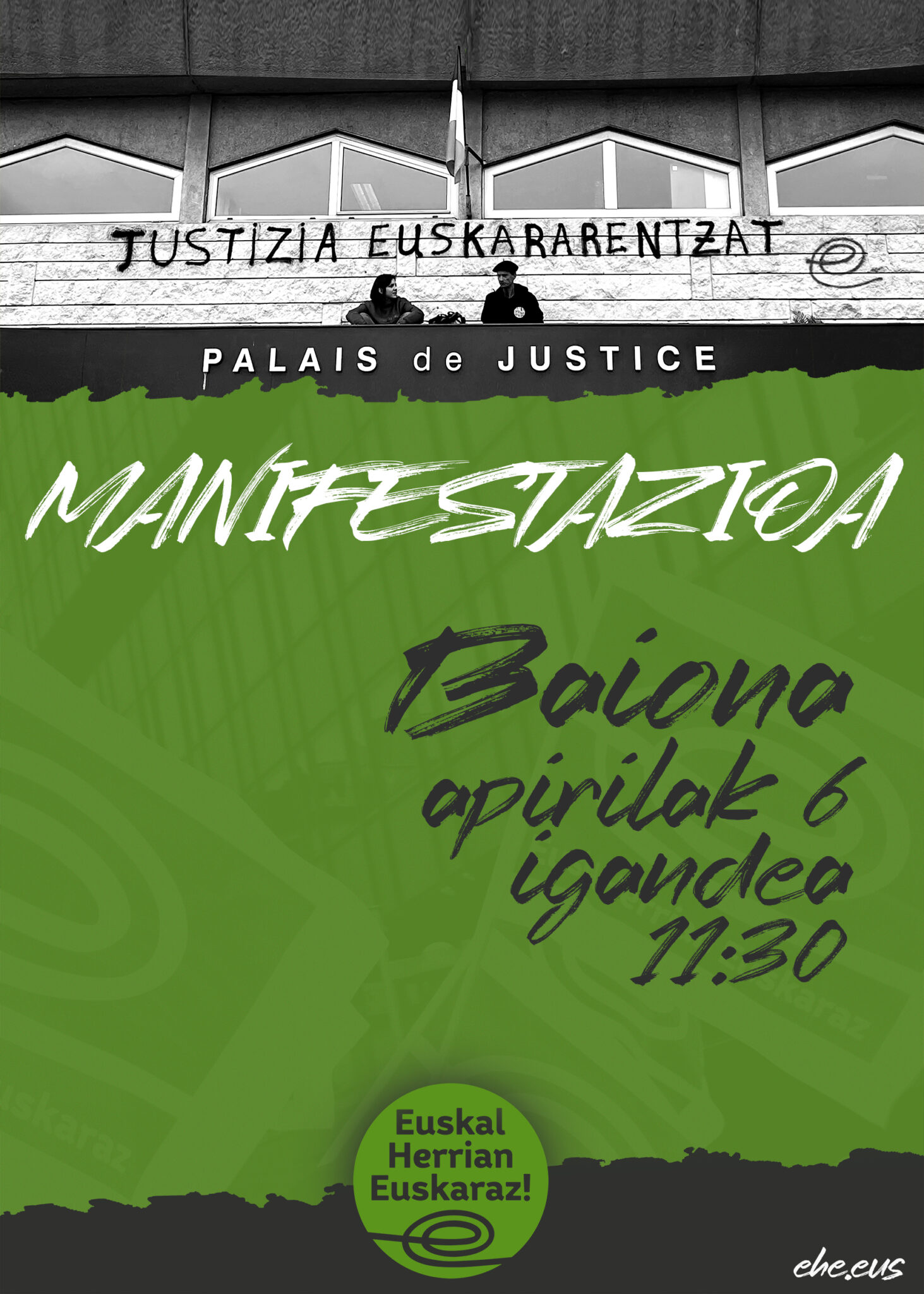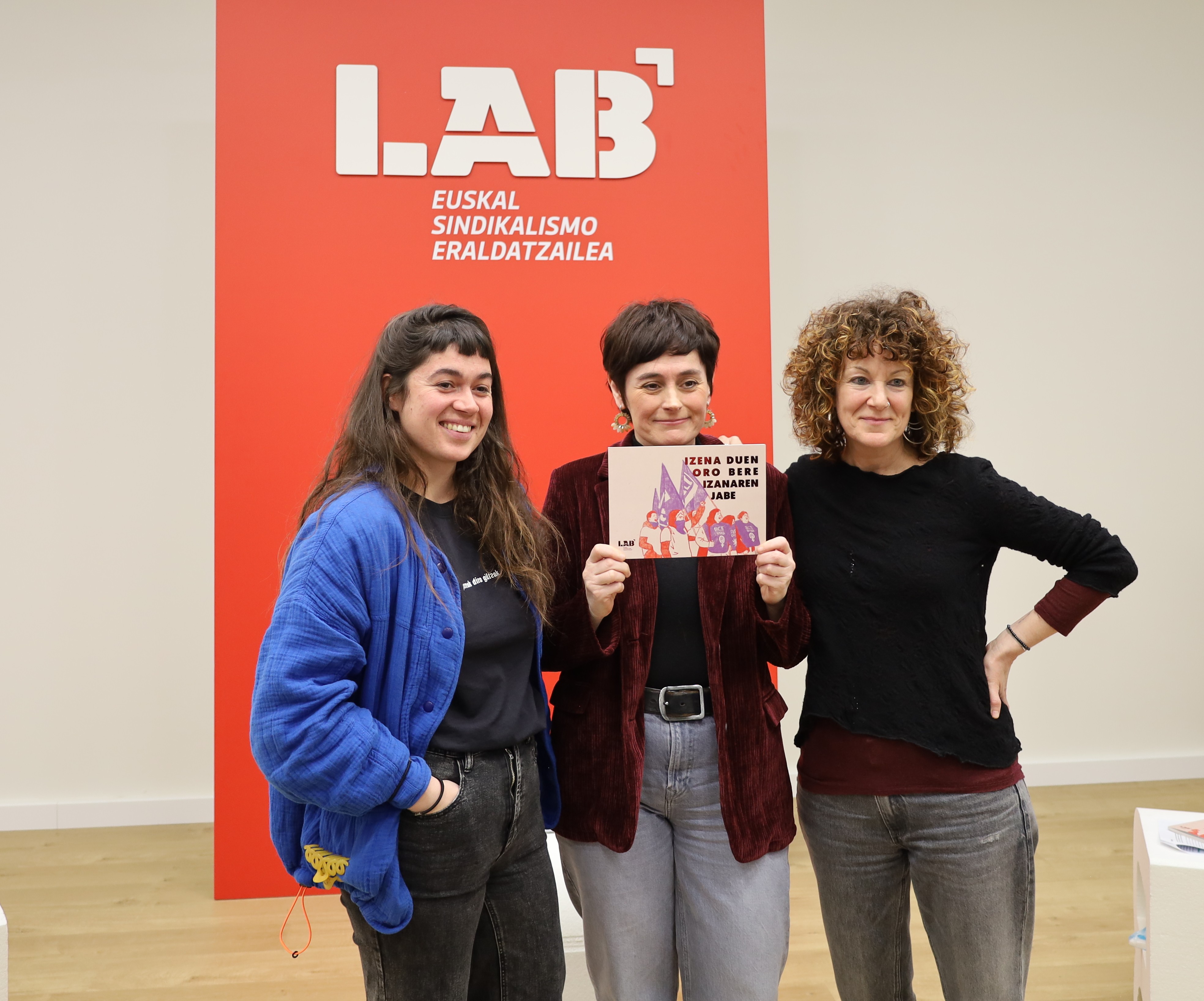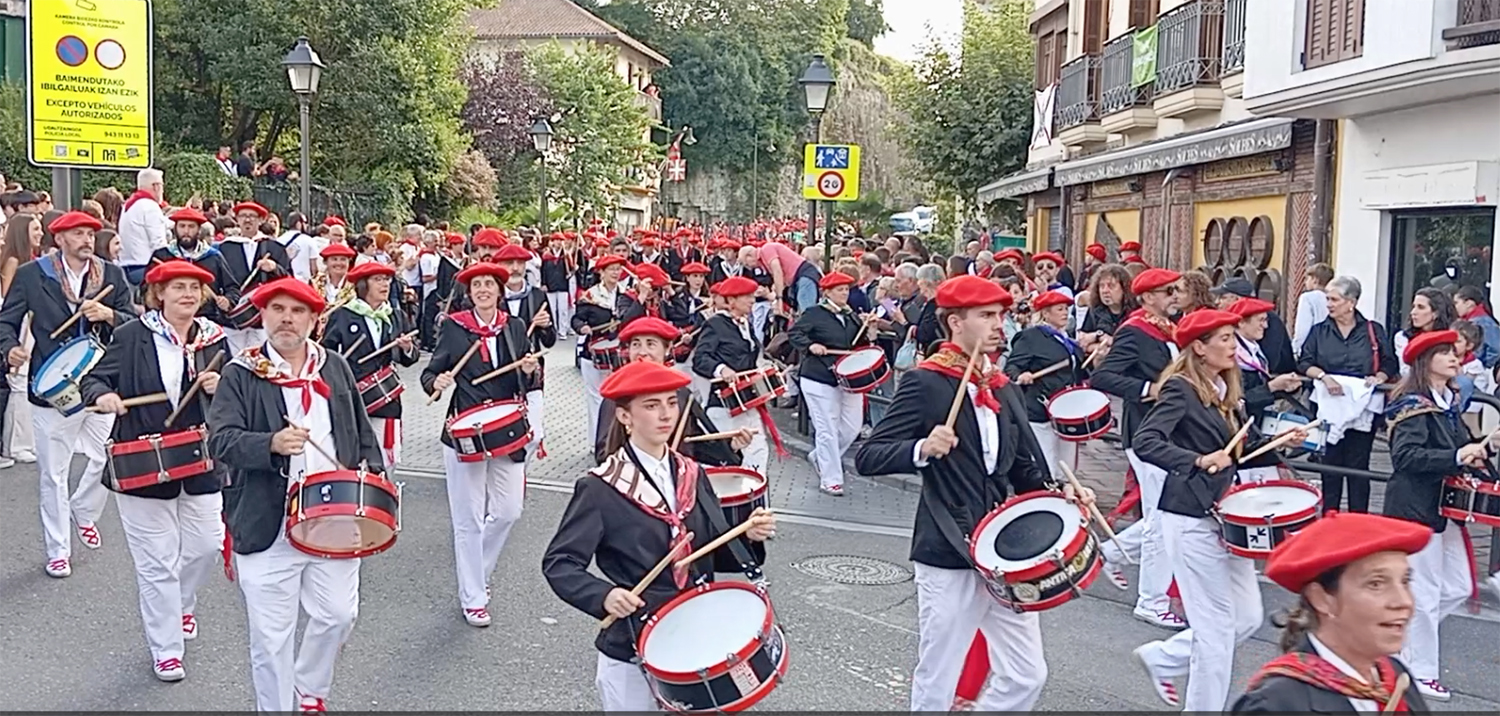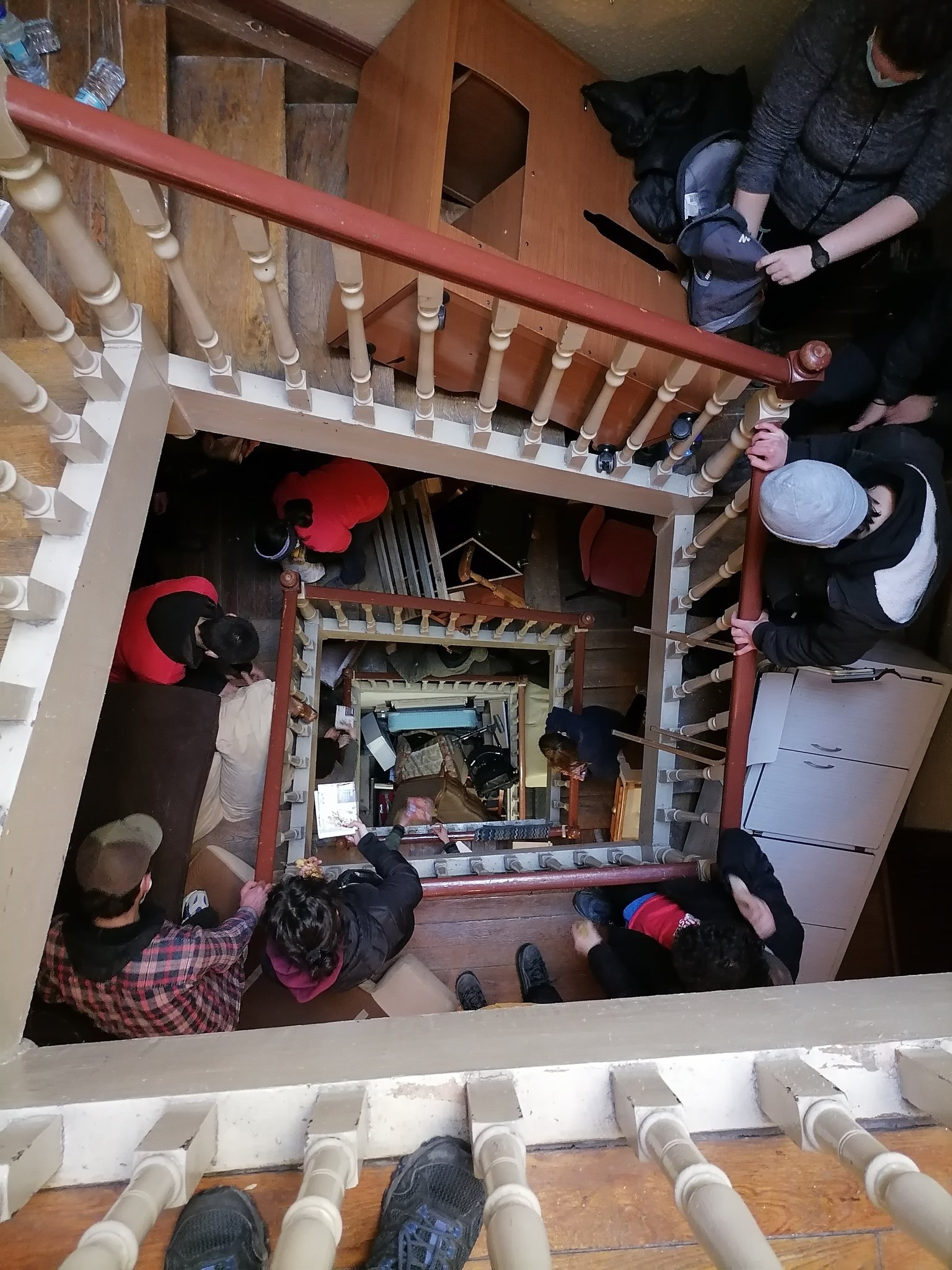"To live well is to try to improve the world, not to be above the tents"
- It is a sea with popular movement, sometimes calm, sometimes proud. With the arrival of the Institute he entered the student organization and now, working as a professor, sick, incapable of doing a regulated job, he continues in the popular movement, in his endeavor to make a better world, from Baztan to Euskal Herria.
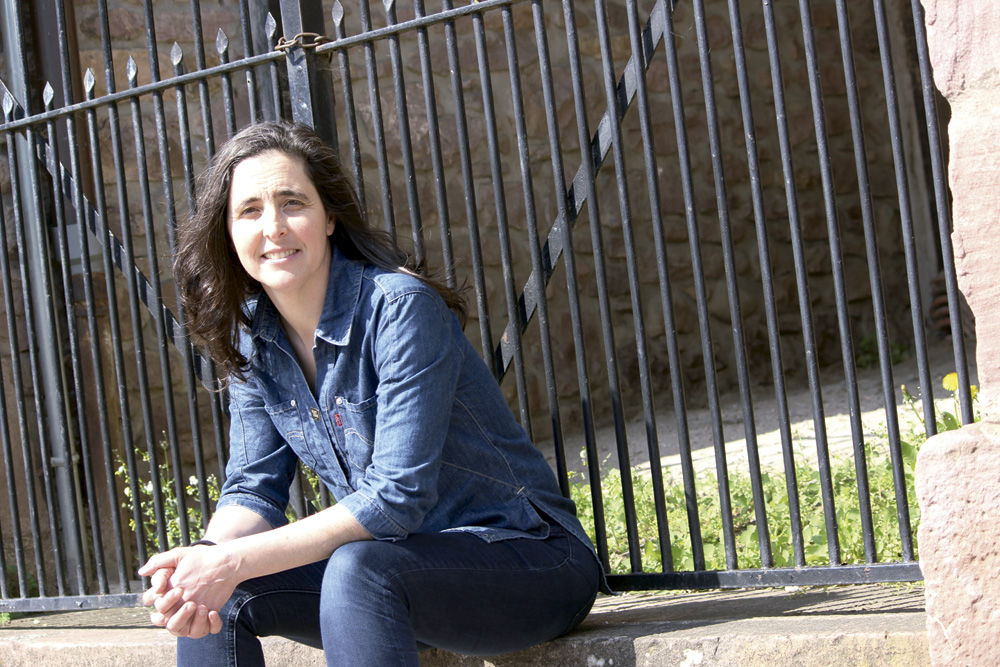
Sorterriko Kantanea etxean bizi da. Irakasle izana, gaixotasunak bazterrarazi zuen lan araututik 2009an, baina herri mugimenduan engaiatua bizi da. Kirika FM, bizi garen munduei begira (Metaziri, 2014) liburua du argitaratua. Oraindik orain, iaz Eako poesia egunetan egindako hitzaldia argitaratu dute: Landa eremua (eta Baztan) literaturak kontatua (Metaziri, 2017). (H)ilbeltza, nobela beltzaren astean ezagutu dugu, baina hor da beti, berdintasunaren alde Baztango mutil dantzetan nahiz pilotakada urbanistikoaren kontra Aroztegian. Arizkunen kultur taldea eratzeko lanean da orain.
Before you knew anything, we have to know from your father, the one Pello Salaburu had to say. Read in the book La Chronicle of Cuzco.
Treated Pantxion. Pello Salaburu says that on the day of my father's death my father was there too. That my father had bought an arache from Salaburu's father and that Salaburu's father had taken the money and fallen to the ground. He tells it in Pello Salaburu's book. My father was a butcher who was buying pigs and sheep from one farm to another.
Neither your father nor your mother were born in Arizkun. There is emigration in your ancestors.
Amatxi was from Erratzu, Amaiur's grandfather. Amatxi married Amaiur and the first three children were born there, including our father, but later they went to Zugarramurdi. My father had left Zugarramurdi. He came to live in Arizkun when he was fifteen years old, because he was his aunt here, without descendants, and he came to help them. In the father's family there were about eight children and three aunts and one uncle went to work in Paris, another to America, another two monks.
The mother also has a history of emigration.
The mother came from Itzall at the age of fifteen. In the area of Itzalle, in Salazar, the road is over. He came to work in a family at the age of fifteen. From Itzall to Arizkun was then a world. Once a year, I went to Itzall to see his parents. Terrible. My mother came to the people for fifteen years in a language that was not theirs, and yet at home we have always spoken in Basque. When we were at the table, we were always in Basque with my father – not a word in Spanish, never in Spanish – and we were in Spanish with my mother. I do not know how we could have followed our conversations, evil! I guess I would also suffer, but we little ones, those children who talk until they start talking with foundation, talked to us in Euskera: zato, tori, pa, pa, jan, lo, xo… I was talking all in Euskera, and now also, with his grandchildren, a little more in Euskera, surely.
When you were born in 1972, emigration here was alive.
My uncle came once from America, so to speak. His brother didn't know him. He left here in eighteen years, from one military service to another in America, and he didn't come to see her until after 40 years. Then he returned to Argentina and did not return. The aunts worked as servants in Paris… They all came out of Zugarramurdi. Before, going from here to Zugarramurdi was a rather big adventure, and needless to say, what it was to go to Paris.
Is this civilization over?
Yes. Today, we are five brothers and we live in Arizkun. Life has been very changed in a short time. Now we have another emigration in Baztan: A lot of people from Latin America, Moroccans, Africans, something -- I think in the Valley they have had a lot of fun. They take work, they enroll the children in model D… The City Hall worked with these families to make that happen.
You lived in Arizkun, you studied in exile, you started organizing yourself in exile.
He spoke in Oronoz, in high school, in the first or second year. I was approached by a friend of Bera and he told me that they had intended to form a group of students. “Bale,” I said, I remember saying: “What fite did you say yes!” I don’t remember what we were doing, we were discovering the rights of the students, living the desire for nation and independence…

He studied and was a professor.
When I was in high school, I was literate and I wanted to do the teaching in Pamplona, in Basque. We were a few of us in the Euskera branch, we were about eight, and on November 20, just, we came up with a manager, the student representative, asking us what we were doing. When we told him “we are from the Basque branch,” he told us that we did not exist. Then we learned that our tuition was not entirely official, according to the law. We spent the year demonstrating until we accepted our studies. They accepted the course, but our branch didn't thrive. “You’ve done the first level in Basque, but now you go to the Spanish branch, or you go here.” And I went to Donostia to spend another two years, in Basque. Then I did an adaptation level and I did Pedagogy.
You had many villages in Navarre as a professor.
In 1995, I joined as a professor in Sartagudo, with a one-month replacement. From there I went to Zarautz, and then I went back to Sartagudo. From then on I had contracts for a whole year in Lekaroz, Garralda, Zugarramurdi, Mendillorri, Doneztebe, Almandoz… In teaching people are dedicated to diving. In those years, when the month of August ended, you went to Pamplona, to the Education delegation, which gave the market. There they had the seats and the teachers' lists. They said our names and we chose the peoples. I, for example, took Zugarramurdi twice, and when I took him, a “ufff!” was heard among the people. The people of Pamplona are far from Zugarramurdi. For me, Zugarramurdi is wonderful.
Did the disease disrupt your teachers?
I was a professor until the time I was disabled. I started in 1998 with the doctor, because I was going to the mountain, or on the slopes, I was going to cough. I slimmed down and went to see the doctor. They told me I had asthma. I treated the disease and they gave me a spray of those. I decided not to take it and follow the path of hygienism. I controlled the disease a lot, but when I was going to the mountain, though, I was always touching. All of a sudden, in 2002, I started to notice more of the disease and the stack got smaller.
What was the disease?
Another doctor told me it wasn't asthma in Gipuzkoa. I was working at Zarautz and Getaria, and there I went to see a doctor, from the private. He put me on the lists of the public telling me I had to run some tests. “No one here is obligated to be rich,” I think he said. He told me my disease wasn't asthma. When I came back to Baztan, he started with the doctor here and he said to me, “Your only future is lung transplantation.” It was the first time I heard the word transplant and I was scared, scared and angry. When you're sick, you're weak, and the same thing would say and accept it in the same way, but that said, no.
They operated on you.
2009. Meanwhile, he walked to the test, but they didn't know any red things, and today's the day they don't know what it was. “We don’t know why it is,” they put on paper. I grabbed the macrobiotic, I forged myself, I didn't stand on the couch, I walked from one side to the other, but the disease got on its way and it came a moment, I got up in the morning and I had to get up before I got up to breathe. I struggled to decide to operate. It seemed crazy to me to transplant the two lungs. I have no doubts anymore, I do not regret it. I feel very good, although on the day I take a lot of medicines, a chain of drugs. I don't want to think about it. What my father said when he took medicine: “Bakotxa to your site!”
He was unable to work in 2006.
I didn’t “produce” anything for society, I felt incapable. Still, I struggled to do the work of my house, to take care of the child, but I couldn't. Since I woke up in the morning, I felt unable to sleep. One day I officially received a disability. “You’re not able.” What a blow! I remember going to Education and I said, “Don’t take me off the list, I’ll come back.”… I haven’t come back, of course. At the same time, the doctor ordered my oxygen. I walked home with an oxygen bomber. It was a terrible blow, too. He didn't leave the house. He spent three years with oxygen until he had surgery.

Traveling outside the world of regulated work has given you a different perspective, as shown in Kirika FM, looking at the world we live in.
Yes, no doubt.
Critical vision.
And optimistic at the same time. Ha, ha… If possible, at least. It also gives a little bit of a panico the fact of thinking: “This is my opinion, but in six years’ time I could change it. On the contrary, this will be here, written.” It's written at a given moment, but it stays there.
You're trying to make a new world from the people.
Since I started in high school, I've been in popular movements. So it was Ikasle Abertzaleak. I was attracted to that world. I don't know if there was another way, the truth. I have followed that path. Since my surgery I have been “retired”, and here there are no works to look at. Ha, ha… But before and after surgery, my job is to improve life, either for me, for my insides, or for my descendants. As we say that life is unique, we will live as best we can. But living well is not being sad, that's a lie, living well is trying to improve the world.
You are always in popular movement, (H)ilbeltza a week, in the Plazara Dantzara group for an egalitarian dance, in the case of Aroztegia or when it comes.
Not being content with the situation, I think, is what is behind that popular movement. The popular movement, in the broad sense. If the teacher who teaches is committed, I consider it a popular movement. (H)ilbeltza, for example, there are professors, people from political parties, feminist groups, editorial Metaziri… There is confusion, organizing things all together. Those of us who have been in the popular movement know how to organize things; I know nothing else. Another feature of popular movement is interest in learning what you don't know.
At Baztan, this popular movement is very alive. The public participates in the activities and events that are organized.
When you organize something and you do a little bit of propaganda, people move easily into the Baztan. You must notify it, you must obtenerlo.Aqui, the good and the bad, we need the car for everything, and it is not cost anything to take the car and go from Arizkun to Irurita. People are interested, yes.
Your popular movement has several faces, several names, several people.
When you start the popular movement, as long as the same person talks, it seems that he is doing his chabola, and the thing is not, you have to distribute the works. (H)ilbeltza, for example, when the interviews have come, we start making shifts, one will do it with the radio, another with television… It is an easy job for people, and the public also sees that it is not a person.
“Maistra erdaldun bat paratu, haurride pila bat gainera, erdaldunak denak, nahikoa da bakotxa koadrila batean sartu eta herria erdalduntzeko. Medikua erdalduna zen, dendaria –gure ama–, erdalduna, edo ez-euskalduna, bederen. Arizkun, bertzalde, nahiko eskuindarra izan da, UPNk irabazi izan du herrian. Hor bada ikergaia, norbaitek egin nahi badu”.
“Medikuaren txostenean jartzen ditu nire izenak, neurriak, hau eta hura, eta gero: ‘temazu’, azken ordu artio ez bainuen operatu nahi izan. Egia da pisua ere aunitz galdua nuela eta ez zutela operatzen ahal, masa muskularrik ez nuelako. Jendea mehetu nahian dabilenean, ezin loditu ni. Etsigarria izan zen. Orain ohartzen naiz zer izan zen prozesu hura”.
“Euskaraz ez daki amak. Itzallen sortu zen. Amatxik bazekien, amak ez zuen ikasi. Hamabortz urtetan Arizkunerat etorri eta ikasi zuen euskaraz zerbait ere. Moldatzen da, nahiz kostatzen zaion. Euskaraz ez daki, baina euskarakadak ditu. Aitari erraten zion: ‘¿A dónde vas a pegar hoy?’. ‘Norat jo behar duzu gaur’. Gaztelaniaz ez da horrelakorik erraten: ‘¿A dónde vas a pegar hoy?’!”.
Elurre Iriartek Kirika FM liburuaren atariko jarria duen poema: “Zure bizitzako / egun goibeletan / ez etsi, / zeren eta noizbait / zeru beltzok ere, / jainko baten soingaineko / zarpaila bezala, / urratuko baitira / azkenean, / eta supituki / agerian utziko / haren biluztasun / distiranta”.
This wedge that the announcement on the radio Euskadi to replace the bathtub with a shower encourages the commencement of the works in the bathroom of the house. A simple work, a small investiture and a great change are announced. There has been a shift in toilet trends and a... [+]











